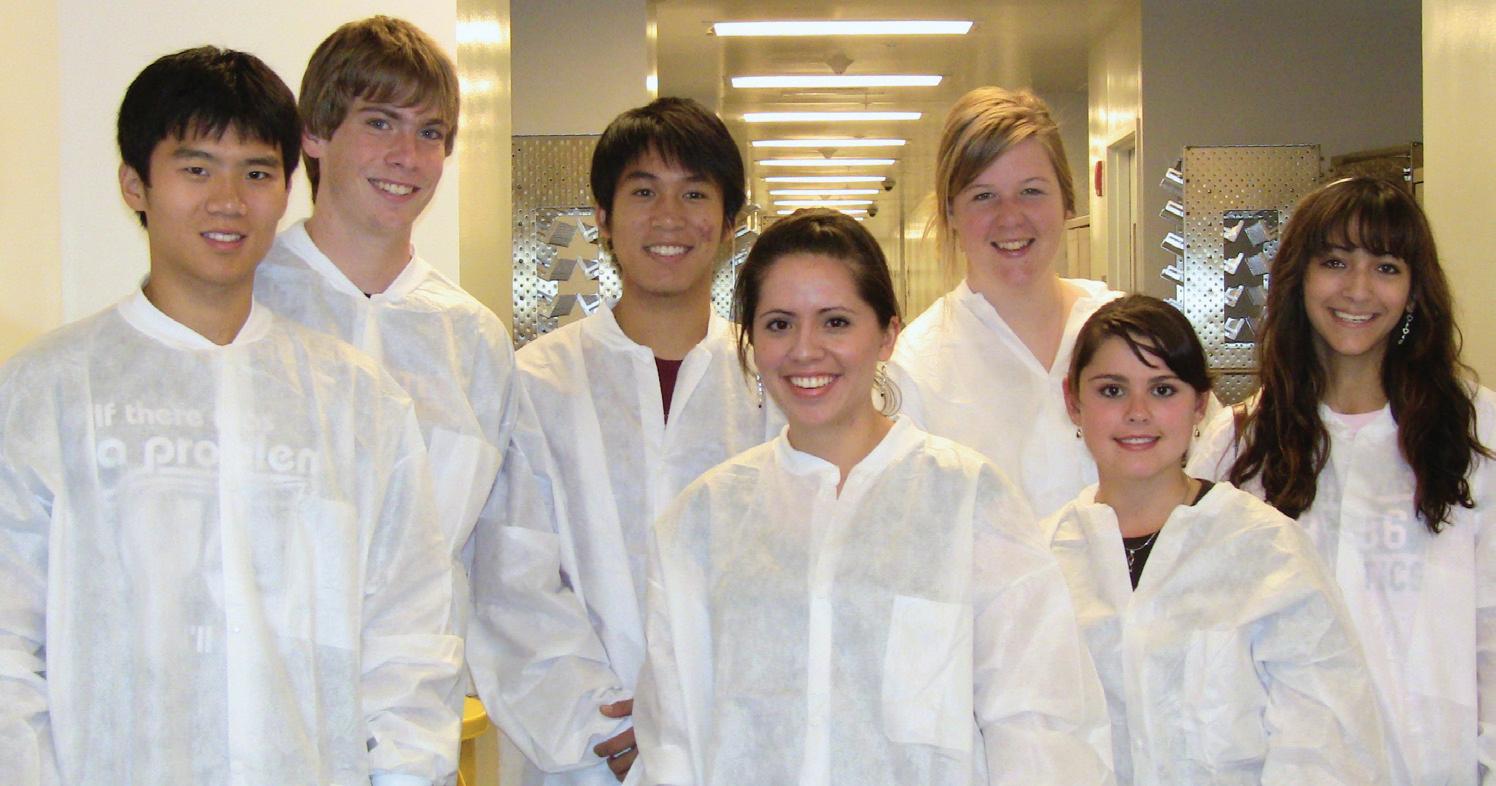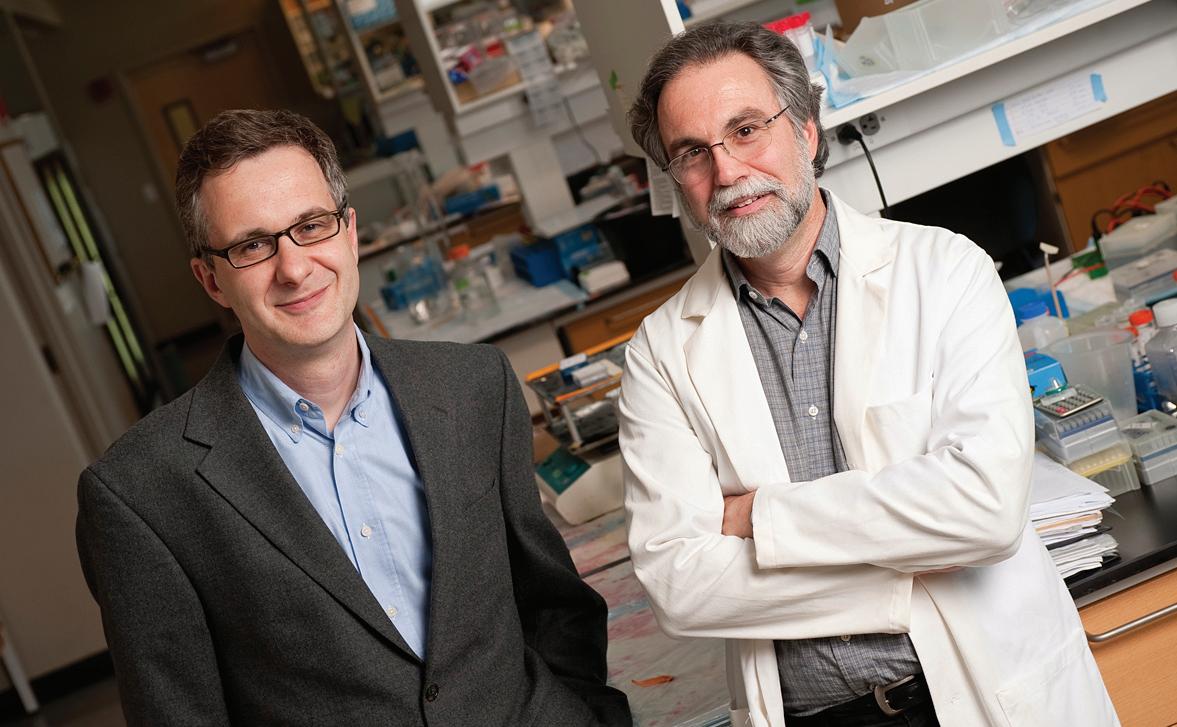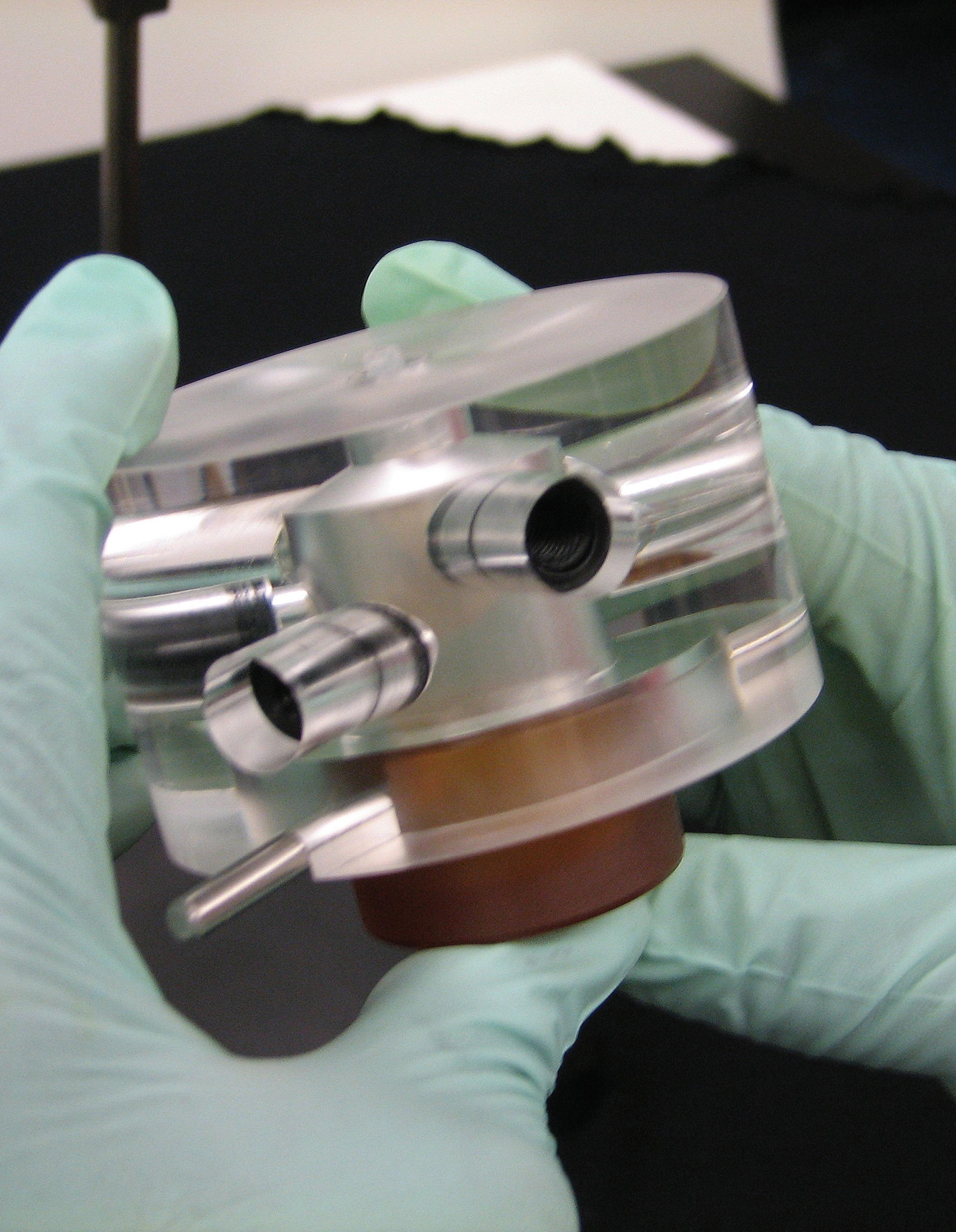
2 minute read
REU
Summer Program Draws Diverse, Talented Future Researchers
By aSHaNTI EdwardS
Advertisement
The National Science Foundation (NSF) reported in November 2009 that over the last decade about 10 times more white students earned doctoral degrees in science and engineering disciplines than did minority students. Acknowledging this fact, yet resolving not to accept it as status quo, Johns Hopkins Institute for NanoBioTechnology (INBT) employs aggressive measures to increase the number of individuals from under-represented groups who apply to its educational programs.
INBT embraces the challenges of recruiting minorities. As INBT’s Senior Educational Program Coordinator, every year I go out to several conferences across the country to recruit the best diverse students to INBT’s many programs. These meetings include the Historically Black Colleges and Universities Undergraduate Program National Research Conference, the annual meeting of the Society for Advancement of Chicanos and Native Americans in Science, among many others.
INBT has so many unique educational programs that we are able to pull students in through diverse pathways. We have graduate and postdoctoral programs and an international research experience program that is open to both graduates and undergraduates.
One of the most successful and popular programs for INBT has been its NSF funded summer internship program—the NanoBio Research Experience for Undergraduates (REU). Now beginning its third year, INBT’s REU has consistently attracted the best and the brightest students interested in research from top universities across the nation. The REU program was launched as a conduit to attract highly talented and motivated students to pursue academic careers in research, particularly women and minority scholars.
INBT’s REU provides housing and a stipend for students so that they can come to Johns Hopkins for 10 weeks in the summer to conduct research under the guidance of faculty and graduate student mentors. The program is highly competitive. For summer 2010, the number of applicants for the 10 slots in the program rose to more than 400, almost twice what it had been the year before. We have been told that this is a high number of applicants.
Why has the REU program at INBT been so successful?
Many college recruiters, program administrators, admissions directors, and faculty find it a challenge to recruit a diverse selection of qualified students, but we have found at INBT that our summer REU has been a great tool for recruiting. We are building a pipeline, starting with our summer program. We have found that the minorities and female students who enroll in our summer program, not only participate in national and scientific conferences after their summer with us, but most go on to apply to several graduate programs and even to Johns Hopkins University.
We receive a lot of applicants to our program, but there is a certain type of student we are after. To gauge the ideal REU candidate, you have to understand the goal of our REU and that is to give the students a graduate experience in interdisciplinary research in hopes that they in return to Hopkins to pursue graduate studies after their undergraduate degree. We are looking for well-

Students spend 10 weeks conducting research in INBT faculty labs. Photo: Vasudev Bailey










